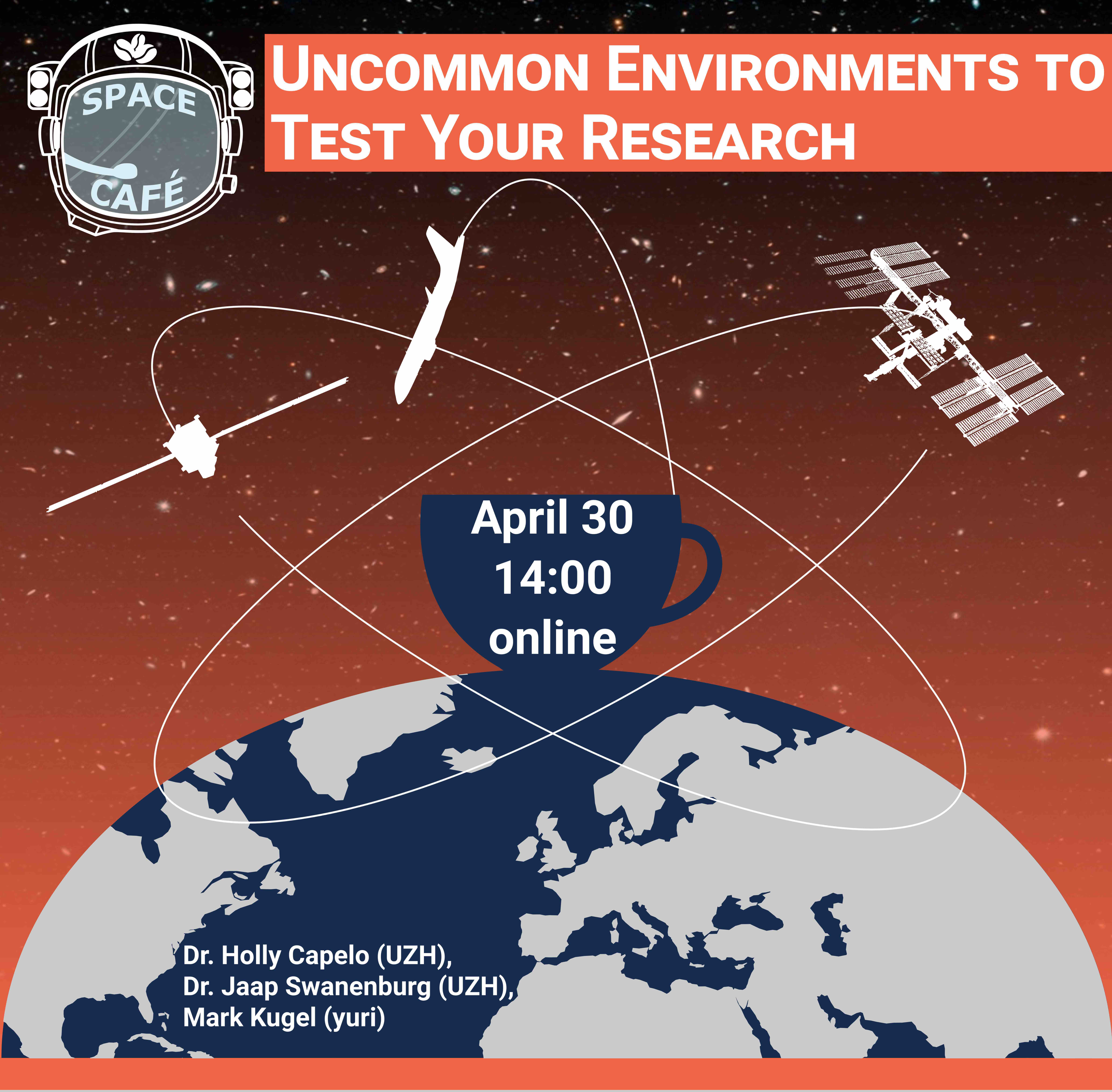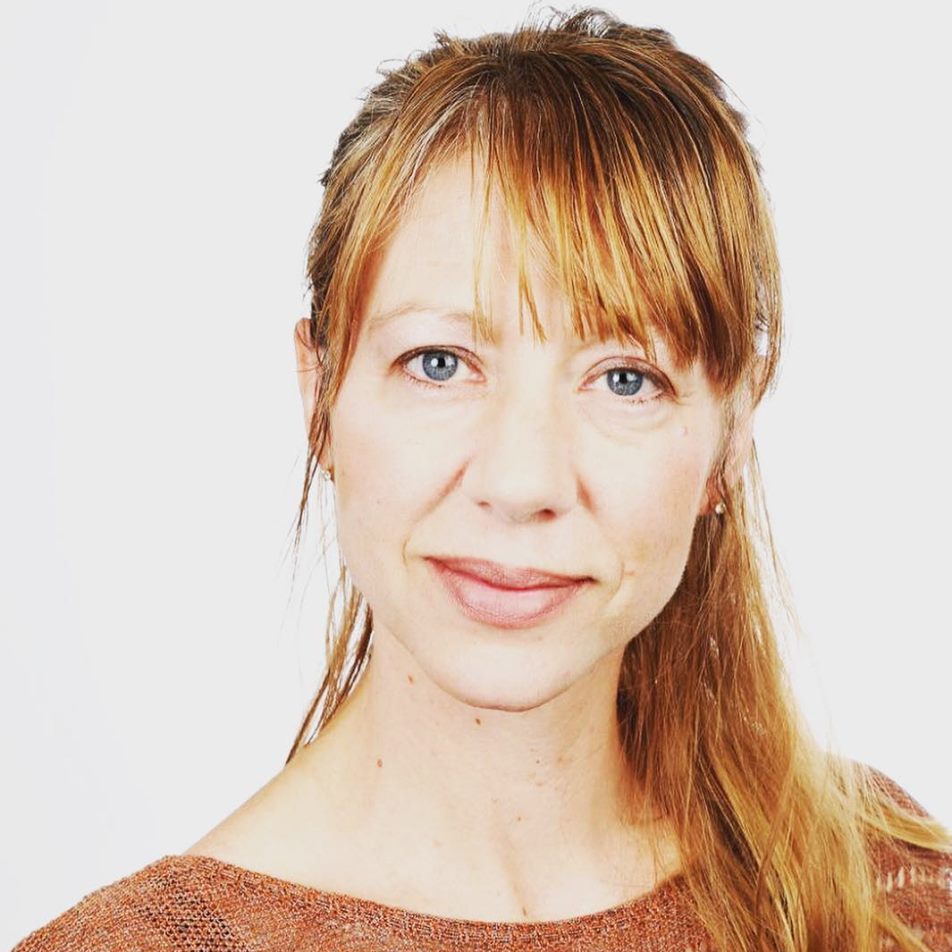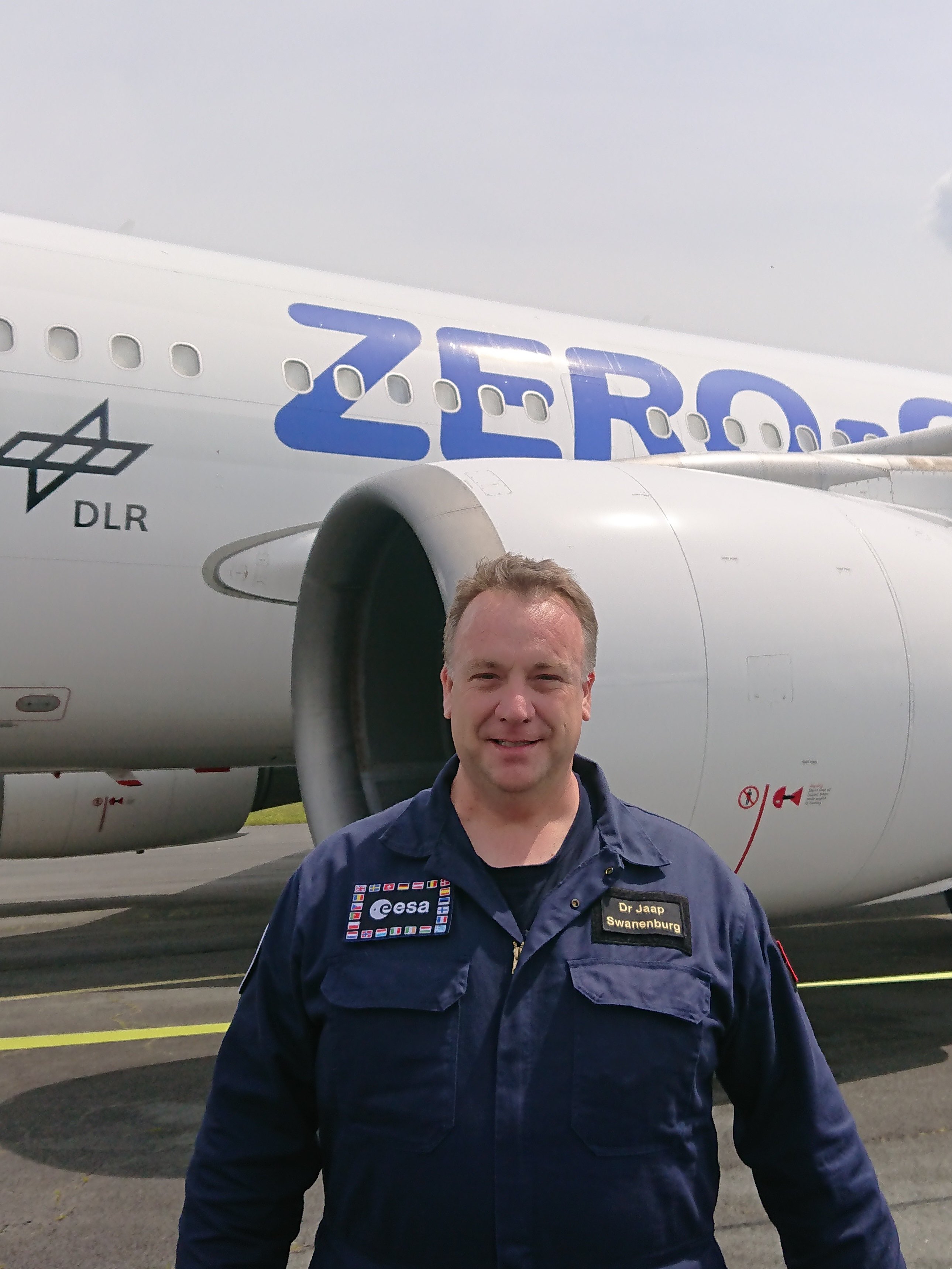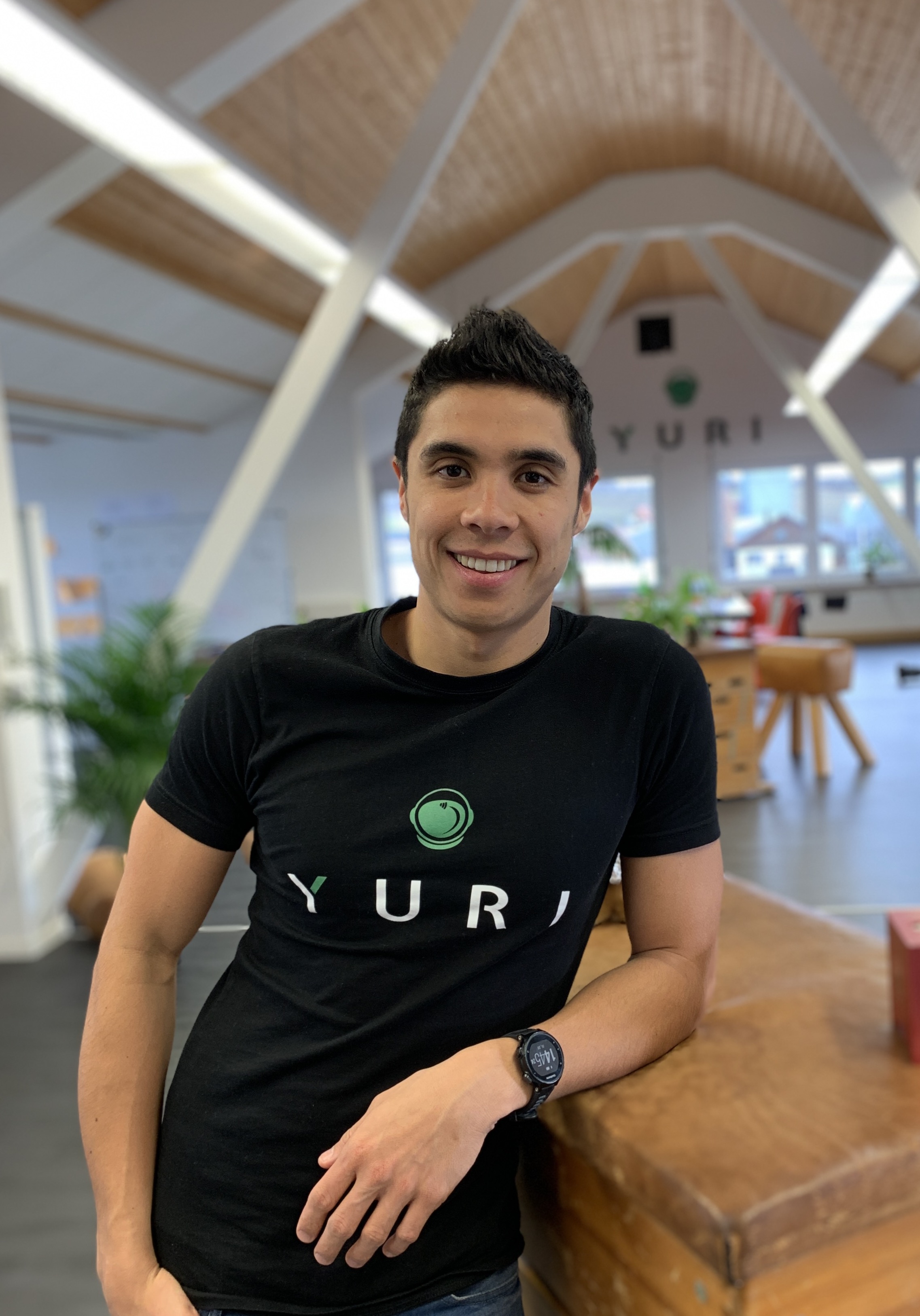Uncommon Environments to Test Your Research

Would you like to test your research but you cannot in a normal laboratory because you need microgravity? Then you could think about different platforms, such as airborne, parabolic flights or even the International Space Station (ISS)!
Two UZH researchers, Holly Capelo and Jaap Swanenburg, both members of the UZH Space Hub, will tell us more about their tests on parabolic flights and how to get there. Mark Kugel, chief commercial officer at Yuri, will introduce his company which has the goal to make microgravity on the ISS accessible to any country or industry.
Read more below and do not forget to register at the end of the page to attend this event online on April 30, at 14:00.
More about Space Café event series.
Speakers

Dr. Holly Capelo got her PhD in experimental physics at the Max Planck Institute for Dynamics and Self-Organization. She currently works as a postdoc at the University of Bern, in collaboration with the University of Zurich.
Abstract
In the discs around newly formed stars, there are dust grains suspended in low-pressure gas. The paradigm for forming planets relies upon these dust particles to first coagulate by collisions and to form dust aggregates. These dust aggregates provide the reservoir of material from which to form planets. A critical part of the formation process involves the aerodynamic interaction between dust aggregates and the gas, which results in pattern formation and the first signs of solid structures in the disc. We have built a dedicated facility to study the aerodynamic pattern formation process of dust aggregates under space-like conditions. I will discuss the motivation for these experiments and some of the techniques that we use for our measurements.

Dr. Jaap Swanenburg has a track record in motor control research, gravity research, assessment device development, therapy interventions, and over 15 years of experience in musculoskeletal rehabilitation. His team successfully conducted spinal motor control experiments during the 2nd, 3rd Swiss and the 71st and 74th esa parabolic flight campaigns. His team has also been selected for the 76th esa parabolic flight campaigns in July 2021. Focusing on back pain in astronauts, Dr Jaap Swanenburg in cooperation with Prof. Dr Marcel Egli of the Lucerne University of Applied Sciences and Arts (HSLU), conducts experiments with astronauts before and after long-term missions to the International Space Station (ISS).
Abstract
Exposing humans to microgravity has severe implications on their health. Low back pain for example emerges in flight and impairs the performance of the astronauts substantially. It is assumed that microgravity induces a swelling of the lumbar intervertebral discs (IVD), which causes the low back pain. New reports are claiming, however, that mechanisms involved in stabilizing the spinal cord might be the main reason for the pain, rather than the disc swelling. Actually, muscles of astronauts undergo atrophy in weightlessness, including the spinal cord stabilizing muscles. A less stabilized spine creates higher loads on IVDs, which is regarded as major reason for low back pain and IVD herniation. Investigations are proposed on monitoring motion patterns and determine the motor control of the spine under various loading conditions pre- and post- long-duration International Space Station (ISS) missions. At least 8 astronauts will be recruited von ESA, NASA, and JAXA for the measurement of their spinal motor control and an ultrasonic examination of the lumbar IVDs. The knowledge gain will lead to an improved understanding of spine stabilization mechanisms and more efficient prevention and re-adaption programs for reducing back pain and the risk of IVD herniation in astronauts.

Mark Kugel is Co-Founder and Chief Commercial Officer of the space startup yuri. yuri is developing tiny bioreactors for cell cultures, plants or fish and launches them for researchers to the International Space Station. Among their customers are NASA, the Charité and the pharma giant GSK. Mark has a Master of Science in Technology Management from TUM. He worked several years at Airbus and Rolls-Royce and started another startup before yuri. He is also the current Guinness world record holder for the fastest marathon in a rocket costume.
How to help researchers create groundbreaking innovations on Earth by offering affordable labs in space
In his talk, Mark will give insights into building a startup at the unusual intersection of biology and space. He talks about the challenges and advantages of founding a startup (his first one) right out of University and shares learnings and a lot of inspiration on his exciting journey so far. He will also talk about working with scientists that use the unique environment for their „out-of-this-world" research, such as a principal investigator from the UTS Sydney that looks at the question whether cancer cells die faster in space or the study with GlaxoSmithKline that looks at improving the shelf life of their drugs with better formulations.